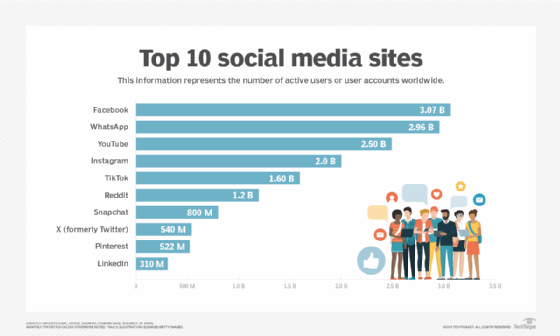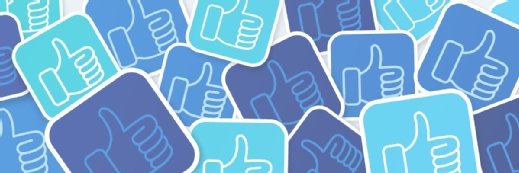
7 effects of social media on mental health
Social media is linked to mental health issues, such as anxiety and body image distortion. Setting limits, taking breaks and engaging in offline activities can foster healthier habits.
Social media use is on the rise and researchers are calling attention to its effects on mental health.
According to a 2023 study published by the National Library of Medicine, excess social media use has been linked to anxiety, depression, stress and other mental health disorders. Another poll on the relationship between social media and mental health conducted by the American Psychiatric Association reveals one in three Americans worry about the negative effects of social media on mental health, and nearly half feel it has harmed society overall.
To address the growing concerns of social media use on mental health, in September 2024, 42 state attorneys general sent a letter to Congress, demanding the inclusion of Surgeon General warnings on social media apps. The American Psychological Association (APA) also warns that social media and features such as infinite scrolling pose significant risks to youth mental health and are urging tech companies to enhance protections beyond age restrictions.
Excessive use of social media can also affect employee productivity and pose significant risks for employers. Misuse of social media by employees can harm reputations, leak confidential information and expose companies to legal risks.
For example, there was an incident in 2008 that involved Burger King employees posting a video of a colleague bathing in a restaurant sink. Similar food mishandling cases have also been reported at other chains, including Dominos and Golden Corral. Walmart also fired an employee who shared company secrets about her long shift in a TikTok video.
Executives are not immune from social media mishaps either. In 2012, the CFO of Francesca's Collections was fired for tweeting sensitive financial details before an SEC report.
On the flip side, social media does offer benefits such as instant social interaction, information sharing, opportunities for self-expression and community building but its darker side can often overshadow these positives.

Effects of social media on mental health
The potential side effects of excessive social media usage on mental health and overall well-being include the following:
1. Increased anxiety and depression
Social media often presents an idealized reality, where people upload and share curated images, posts and reels showcasing the best moments of their lives on platforms such as Instagram, Facebook, X (formerly Twitter) and TikTok.
A paper published by the APA reveals that 41% of teens with the highest social media use rate their overall mental health as poor or very poor. The pressure that they feel to maintain a certain online persona and the constant need for validation through likes and comments can exacerbate mental health conditions such as fear of judgment or rejection by peers. Additionally, the addictive nature of social media can lead to excessive screen time, further compounding mental health challenges such as anxiety and depression.
While social media has been linked to anxiety and depression in teenagers, studies show that platforms including TikTok and Instagram can also negatively affect middle-aged adults. A study in JAMA Network Open, which surveyed 5,395 adults with an average age of 56, highlights these effects.
A recent article also indicates that doomscrolling is on the rise, which results in increased levels of anxiety and stress for social media users.
2. Cyberbullying
Cyberbullying -- aggressive behavior that occurs through digital means, such as hurtful texts, unkind social media posts and harassment in chatrooms -- seems to have escalated with the rise of social media platforms. Cyberbullying appears to have a higher prevalence among teens and young people due to the increased amount of time they spend on social media. A report from the Pew Research Center reveals about 46% of U.S. teens have encountered cyberbullying.
Children often fall victim to social media privacy concerns through inappropriate comments from classmates on social media platforms or through doxxing, which is a type of cyberbullying where individuals maliciously share someone's personal information -- such as their address or phone number -- to incite harassment from others.
Unlike traditional bullying, cyberbullying can occur around the clock and from anywhere, enabling bullies to relentlessly target their victims. The victims of cyberbullying endure profound emotional distress, which can lead to heightened feelings of isolation, anxiety as well as depression.
However, it's not only teens who are affected by these mental health problems. According to a cybercrime prevention flyer from the U.S. Army Criminal Investigation Division, adults can feel the same effects of cyberbullying that children do. This includes depression, insomnia, decreased self-esteem, social withdrawal, increased feelings of anger and irritability. Long-term effects can include angry outbursts and substance abuse.
3. Fear of missing out
The number of people using social media is more than 5.17 billion worldwide, with the average user accessing 6.7 social media platforms monthly. This growing dependence on social media has given rise to a condition known as FOMO -- or fear of missing out -- among individuals. A 2021 study published in the scientific journal Computers in Human Behavior identifies excessive social media use as the main cause of FOMO.
People experiencing FOMO are victims of social media influence and are prone to nonstop scrolling on their apps. They also find themselves constantly checking social media for updates to stay connected with their social circle. However, missing out on these experiences can lead to feelings of anxiety and depression. For instance, learning about being excluded from an event, such as not receiving an invitation to a party that others have been invited to, can trigger feelings of sadness and depression.
FOMO can also happen in the workplace. For example, if a company hosts a team-building retreat where only certain employees are invited, those excluded could feel anxious and inadequate. Seeing peers share highlights of this event on social media can further intensify feelings of isolation, affecting their morale, productivity and job satisfaction. It can also potentially result in turnover as they seek a more inclusive workplace culture.
4. Sleep disruptions and lower work productivity
A survey conducted by Sleep Foundation discovered that U.S. adults spend 3.5 hours on social media before bed each day and 74.7% of their social media use occurs right before bedtime. Also, in May 2023, the U.S. Surgeon General issued an advisory highlighting the negative effects of social media on youth mental health. The advisory pointed out that excessive or uncontrollable social media use is associated with sleep issues, attention problems and feelings of exclusion among adolescents. However, poor sleep due to social media use is not just restricted to kids and also affects adults. For example, it can hamper work productivity by impairing cognitive functions, problem-solving and decision-making abilities.
According to a review in the National Library of Medicine, while all light can disrupt circadian rhythms, blue light from electronic screens has the most significant effect on sleep. It stimulates brain areas that keep people alert, making it harder to wind down at bedtime. This issue can be made worse for those who check their phones at night, with around 21% of adults reporting this habit, increasing their risk of insomnia and other sleep disorders.
5. Comparison and body image
The curated nature of content shared on social media platforms can influence how people perceive their bodies and also cause body image and comparison issues. Social media filters have also given rise to Snapchat dysphoria, a condition where people want to resemble their filtered selves. A research paper highlights numerous plastic surgeons who have encountered patients requesting treatments to resemble their filtered Snapchat images. Another study by dermatologists at Boston University Chobanian & Avedisian School of Medicine reveals spending more time on social media, with its constant stream of idealized images, increases the likelihood of individuals wanting cosmetic procedures.
Social media is also perpetuating eating disorders, especially among teens. In fact, in recent years, social media companies have faced multiple lawsuits from parents claiming their platforms contribute to teens developing eating disorders. Last year, the Social Media Victims Law Center filed three lawsuits -- two against Meta and one against TikTok -- alleging the social media apps led young girls to develop chronic eating disorders.
A 2022 study found a concerning link between Instagram use and body image issues among young women. The platform's focus on idealized and edited images fosters comparison and self-criticism, making participants feel pressured to meet unrealistic beauty standards set by influencers and celebrities. This often also results in feelings of inadequacy and low self-esteem. However, it's not only younger people who are affected. A report in the Ballard Brief research library found that more than 20% of adults who use social media regularly struggle with body image issues.
6. Addiction
Social media use can lead to addiction issues, characterized by compulsive behavior and an inability to control the amount of time spent online. This phenomenon -- often referred to as social media addiction -- has become increasingly prevalent and can have serious repercussions for both physical and mental health. In his book titled Chaos Machine, New York Times reporter Max Fisher said social media addiction can be largely attributed to the dopamine-inducing environments that social networking sites provide.
A research study on social media's effect on workers indicates that unrestricted use of social media in the workplace negatively affects employee productivity, resulting in a daily loss of approximately 9.5% in productivity. The study also found that employees typically spend around 40 to 45 minutes during work hours on social media for nonwork-related activities.
7. Isolation
Excessive social media use can make people more isolated by creating a false sense of connection. People addicted to social media tend to neglect face-to-face relationships, which often results in social withdrawal and isolation from the real world. Since virtual interactions lack the emotional depth of in-person connections, individuals may ultimately feel more alone, despite being constantly and virtually connected to others.
According to a study published in the Journal of Social and Personal Relationships, compared to teens who grew up in the 1980s and 1990s, teens today spend around an hour less a day socializing with their friends in person. Furthermore, the study found that the most lonely and isolated teenagers reported having more online interactions than in-person social interactions.
Social media can cause isolation in workplaces as well. For example, Microsoft Teams -- a social app designed to facilitate social interaction among colleagues -- often lacks the personal touch of face-to-face interactions. This can make it challenging for remote employees to feel truly connected and engaged.
The reliance on digital communication leaves employees missing the informal interactions that occur naturally in an office environment. This disconnect has prompted many businesses to advocate for a return to the office. For example, companies such as Amazon and Apple have set up strict return-to-office policies to enhance collaboration and innovation, reflecting a broader trend among employers who believe in-person work fosters better collaboration and innovation.
Tips on how to curb unhealthy social media habits
According to addictionhelp.com, most individuals can manage social media addiction on their own before turning to professional help. Some tips to develop a healthier relationship with social media and the internet in general include the following:
- Set time limits. Establishing daily limits for social media usage and adhering to them can be beneficial. Individuals can use app timers or built-in screen time features to monitor their use.
- Schedule breaks. Taking regular breaks from social media -- such as digital detox weekends or specific times during the day to refrain from checking accounts -- can help.
- Curate the feed. Unfollowing accounts that contribute to negative feelings or waste time is important. Individuals should focus on content that inspires or enriches their lives.
- Engage in offline activities. Pursuing hobbies or activities that don't involve screens -- such as reading, exercising or spending time with friends and family -- is encouraged. Reduction in screen time is beneficial to mental health.
- Be mindful of triggers. Identifying situations or feelings that prompt social media overuse can lead to finding alternative coping strategies, such as journaling or meditating.
- Limit notifications. Turning off nonessential notifications can reduce the temptation to check phones constantly.
- Practice mindfulness. Being aware of social media habits and their effect on mood is crucial. Individuals should reflect on how they feel before and after using social media.
- Communicate openly. Sharing goals related to reducing social media use with friends and family can foster support and encouragement in setting healthy boundaries.
- Set clear goals. Defining what one wants to achieve with social media use -- such as staying informed or keeping in touch with friends -- can help maintain focus on those objectives.
Kinza Yasar is a technical writer for WhatIs and has a background in computer networking.








